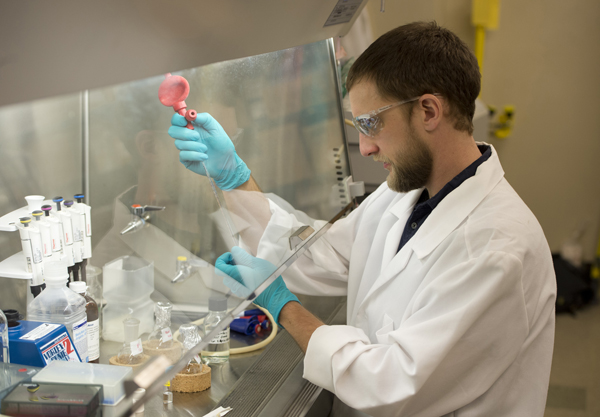- Editorial Offices
- 203 Brantly Hall
- Missoula, MT 59812
- (406) 243-2488
- themontanan@umontana.edu
UM Lands $10M Contract to Fight the Flu
Researchers to Use National Institutes of Health Award to Develop Universal Vaccine
The National Institutes of Health have awarded a $10 million contract to the University to develop a new universal flu vaccine.
The five-year award went to Dr. Jay Evans, director of UM’s Center for Translational Medicine and a research professor in the Division of Biological Sciences.
“Influenza virus infection is a serious public health problem that causes severe illness and death in high-risk populations,” Evans says. “Although vaccination remains the most effective way to prevent this disease, mismatch between vaccine strains and circulating strains can lead to a sharp drop in vaccine effectiveness. Thus, a critical unmet need is the next generation of vaccines capable of inducing broadly protective immune responses against the influenza virus.”
Other UM researchers included on the award are Hélène Bazin-Lee and David Burkhart, both in the Department of Biomedical and Pharmaceutical Sciences. The project also includes investigators from the University of California, San Diego; the Icahn School of Medicine at Mount Sinai; and Inimmune Corp., a corporate development partner based in UM’s business incubator.
Evans says the team of vaccine researchers in UM’s Center for Translational Medicine has spent more than 10 years working on the discovery and development of new vaccine adjuvants – components added to a vaccine to improve the immune response.
One such discovery, a synthetic dual-TLR adjuvant combination system called TRAC-478, shows great promise to improve both seasonal and pandemic flu vaccines and could be broadly applicable to other vaccines as well.
“There is remarkable research ongoing at UM that could transform the lives of countless people,” Evans says.




